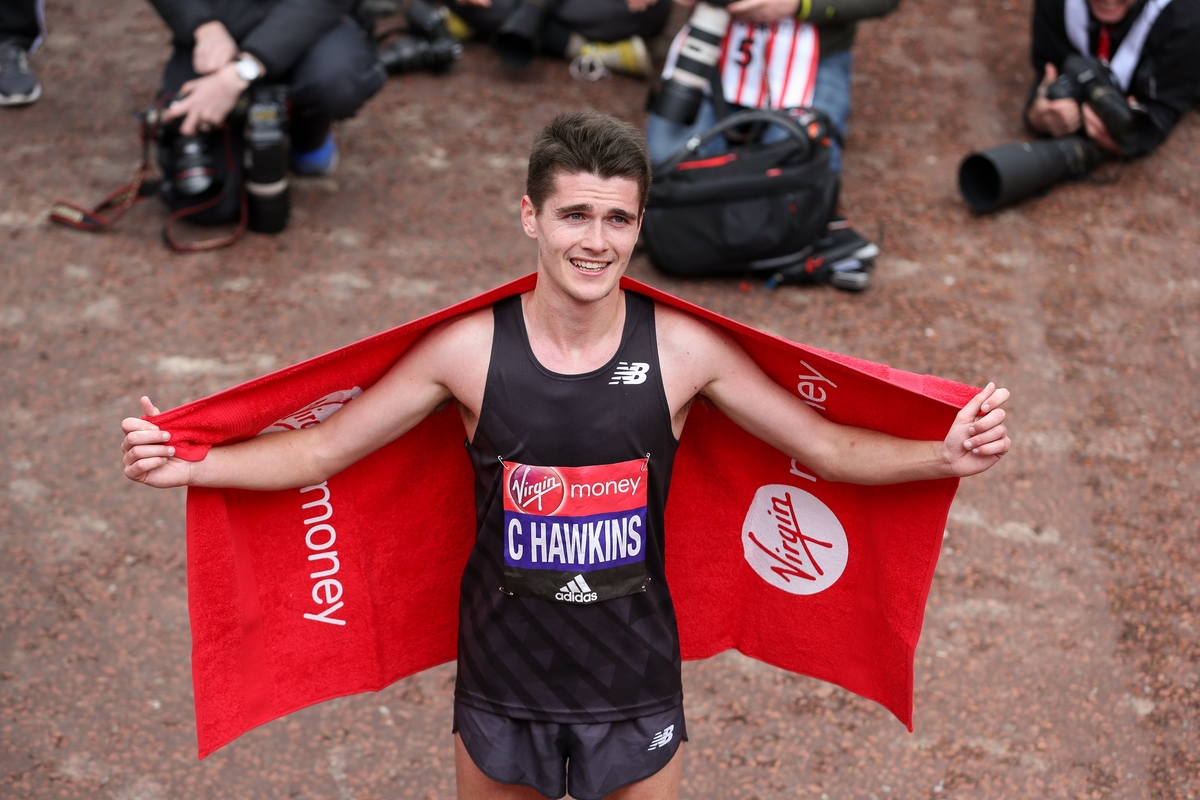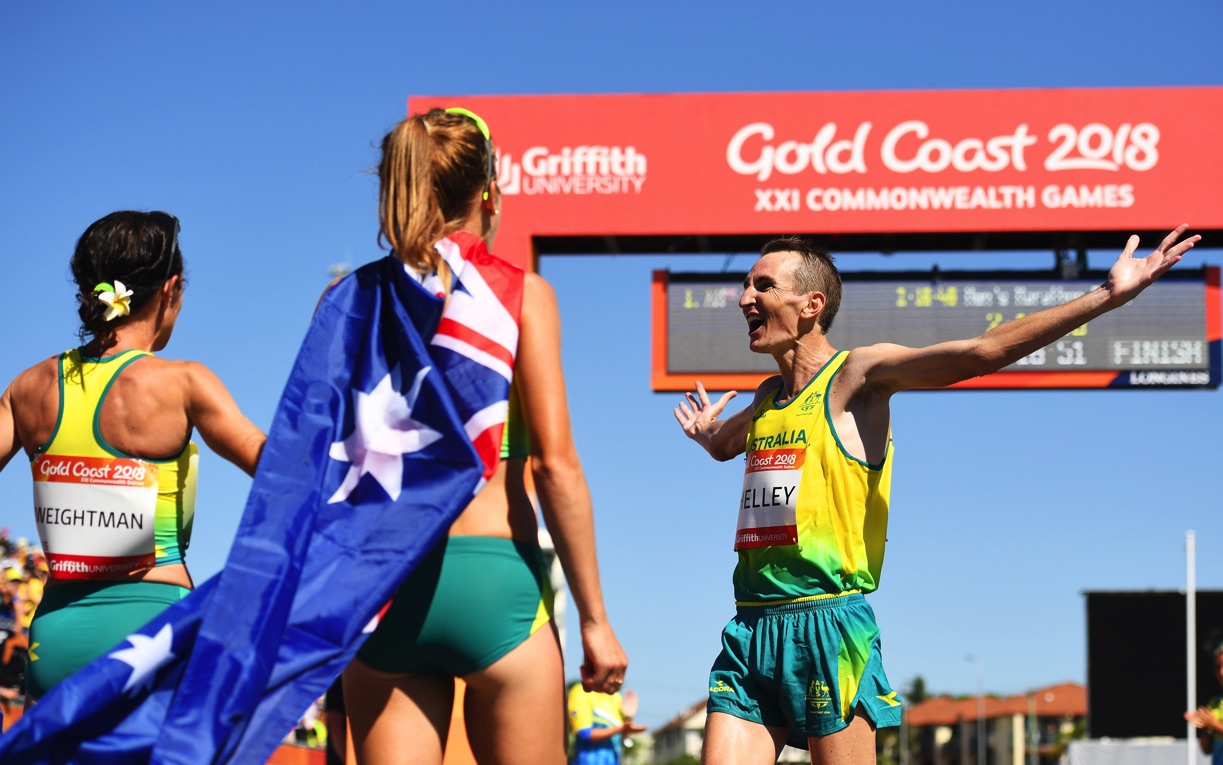MATT FITZGERALD – Runner’s Tribe
Matt Fitzgerald is an acclaimed endurance sports coach, nutritionist, and author. His many books include The Endurance Diet, 80/20 Running, and How Bad Do You Want It?
Callum Hawkins came into the 2018 Commonwealth Games Marathon in Australia with high expectations. Having set a national record of 1:00:00 for the half marathon and finished fourth in the World Championship Marathon the prior year, the 25-year-old Scotsman was supremely confident in his ability to claim a gold medal for his small, proud country. His strategy–despite expected temperatures in the mid-80s–was to run hard from the start and demoralize the other contenders. This bold but risky plan played out exactly as Callum imagined it, and with just 2 miles left in the race he held a commanding 2-minute advantage over defending champion Michael Shelley of the host nation.
And that’s when the wheels came off. Trapped inside his body by the ambient heat of the day, the metabolic heat generated by Callum’s hardworking muscles, having accumulated steadily throughout the marathon, crossed a dangerous threshold as he approached the 40 km mark. He began to weave back and forth across the road like a blindfolded drunk in a hurricane. It was only a matter of time before he went down, but he managed to stay upright far longer than an actual blindfolded drunk in a hurricane would have done before pitching over onto a grassy verge on the side of the road. Spectators watched with a lack of visible alarm that I can’t imagine myself showing in their place as Callum tried repeatedly to hoist himself upright, now looking like a boxer trying to beat a 10-count, succeeding on his third try.
Still leading, he lurched along in a grotesque approximation of human bipedal locomotion for another couple of hundred meters before collapsing again, this time smacking his head against a metal railing and staying down. After an unforgivably long delay, medics came to Callum’s aid, ending his race officially. When he came to later in the back of an ambulance, the young runner croaked out words expressing his only concern: “Did I win?”
In a recent podcast interview, I was asked whether I thought mental fitness was something people were born with (or not) or something that could be developed over time. I was thinking of Callum Hawkins when I answered that I’d be lying if I said that mental fitness was not partly innate. Exertional heat illness had reduced Callum to a beast of basic instincts in the crisis phase of his 2018 Commonwealth Games Marathon performance. He most certainly was not making considered tactical decisions when he kept running well beyond the point where most runners would have quit, or when he got up and kept running after his first fall, or when he refused medical assistance initially after his second fall. Heck, he doesn’t even remember doing these things! He just did them.
Even more revealing is that moment in the back of the ambulance. Not yet out of danger and barely coherent enough for speech, he asked not “What’s wrong with me?” or “Am I going to be okay?” but “Did I win?” There’s something almost Shakespearean about the scene I picture when I read accounts of this moment. Rarely do so few words say so much about a person. Thank goodness people like Callum Hawkins exist.
As for the rest of us, we just need to accept that Callum and athletes like him have something we lack and can never acquire. But that’s okay. The answer to the nature/nurture question is seldom either/or, and mental fitness is clearly something that any athlete can cultivate over time, even if the very highest level of mental fitness is attainable only by those who are born with this potential. In this respect, mental fitness is very much like physical fitness.

We all know that only a tiny percentage of the human population possesses the genetic potential to reach the elite level of endurance sports performance. But this knowledge does not make the rest of us throw up our hands and say, “What’s the point?” That’s because even the least talented among us have the capacity to increase our endurance fitness markedly through training, and there is tremendous satisfaction to be had in earning such improvement.
It’s the same with mental fitness. I myself was born with a very low level of mental fitness, as evidenced by the various stunts I pulled to escape the pain cave as a high school runner—faking an injury in the middle of a 2-mile track race, hiding in the woods and missing the start of another 2-mile track race, etc. But years of consciously working to raise my mental game transformed me into a completely different athlete, one who is utterly fearless on the racecourse. I can’t see myself ever waking up in an ambulance and asking “Did I win?”, but I’m okay with that, just as I’m okay with not being able to attain a VO2max of 80 ml/kg/min.
No matter what your starting point is with mental fitness, accept it and focus on getting better.





























